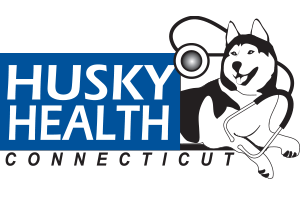
CMO Corner: Lawrence Magras, MD, MBA, FHM, FAAPL
Obesity Screening
The prevalence of obesity in the United States is increasing. In 2020, the rate of self-reported obesity among adults in Connecticut was 29.2%.1 Based on 2020 Connecticut Medicaid claims data,2 11.7% of HUSKY Health members were diagnosed with obesity, including 13.4% of adults and 8.2% of children and adolescents. Although widely recognized as a chronic disease, obesity remains underdiagnosed and under-treated. . . read more
Control of obesity is important in reducing the burden of chronic disease. Individuals who are obese are more likely to develop serious medical conditions that can reduce quality of life, shorten life span, and can also contribute to the rising cost of healthcare. Among HUSKY Health members, 46.6%2 of those diagnosed with obesity had comorbid hypertension and 28.7%2 of those diagnosed with obesity had comorbid diabetes. Without screening, many patients may not receive counseling about associated health risks, necessary lifestyle changes, obesity management options, and risk factor reduction.
Adults
The National Heart, Lung, and Blood Institute (NHLBI),3 recommends that all adult patients be screened for overweight and obesity at least annually by measuring height, weight, and calculating body mass index (BMI) as part of a routine physical exam.
The recommended classifications for BMI adopted by the National Institutes of Health (NIH)4 are:
- Underweight: BMI < 18.5
- Normal weight: 18.5 to < 25
- Overweight: 25 to < 30
- Obesity: 30 or >
- Class I: 30 to < 35
- Class II: 35 to < 40
- Class III: 40 or >
Additionally, the NHLBI also suggests that clinicians measure waist circumference. Measurement of waist circumference in conjunction with BMI can provide additional information on potential health risks. A waist circumference of < 40 inches for men and < 35 inches for women is recommended. Furthermore, assessment of cardiovascular risk factors and comorbidities should be performed and further interventions based upon historical, physical, and/or laboratory results.
Children and Adolescents
Obesity in children and adolescents is associated with mental health and psychological issues, asthma, obstructive sleep apnea, orthopedic problems, and adverse cardiovascular and metabolic outcomes. Children and adolescents also may experience teasing and bullying behaviors based on their weight. Obesity in childhood and adolescence may continue into adulthood and lead to adverse cardiovascular outcomes or other obesity-related morbidity, such as type 2 diabetes.5
The National Heart, Lung, and Blood Institute (NHLBI)3 recommends that children and adolescents be screened for overweight and obesity at least annually. A healthy weight is a BMI at the 5th percentile up to the 85th percentile, based on growth charts for children who are the same age and sex.
Although all children and adolescents are at risk for obesity and should be screened, there are several specific risk factors associated with obesity, including poor nutrition, low levels of physical activity, inadequate sleep, sedentary behaviors, and low socioeconomic status.6
To support providers in identifying and managing patients who are overweight and obese, the HUSKY Health program offers the following tools:
- HealthX Provider Portal Reports - PCP reports, based on claims data and available on the secure provider portal, that identify attributed patients diagnosed with obesity and prediabetes
- Fat Attack™ - An initiative of the HUSKY Health program, offering workshops, videos, and online health information to help members decrease excess fat consumption and develop healthy, balanced eating habits
1 https://www.cdc.gov/obesity/data/prevalence-maps.html#overall
2 ASO Claims Data Warehouse
3 https://www.nhlbi.nih.gov/files/docs/guidelines/prctgd_c.pdf
4 https://www.nhlbi.nih.gov/health/educational/lose_wt/risk.htm
5 https://www.cdc.gov/obesity/childhood/causes.html
5 https://www.nhlbi.nih.gov/health-topics/overweight-and-obesity

Intensive Care Management (ICM) Post-COVID Program
Community Health Network of Connecticut, Inc.® (CHNCT) has actively engaged with members throughout the COVID-19 pandemic, focusing on prevention, increasing understanding of the risk of potential severe illness due to existing conditions, and promoting access to appropriate care and services including vaccination. . . read more
In addition to these efforts, new interventions now focus on post-COVID conditions, which according to the Centers for Disease Control and Prevention (CDC), represent a wide range of new, returning, or ongoing health problems people can experience four or more weeks after first being infected with the virus that causes COVID-19. A variety of symptoms have been recognized, and in severe cases, some may experience multi-organ effects or autoimmune conditions with symptoms lasting weeks or months.1
In response to evolving information on post-COVID conditions, including the impact on long-term health outcomes and healthcare costs, CHNCT’s ICM team implemented a care management program for individuals with a history of COVID-19, diabetes, hypertension, and obesity. The program is driven by risk stratification tools and analytics which assign risk levels based on race, ethnicity, residence within a high SVI (Social Vulnerability Index), zip code, and additional factors associated with increased morbidity and mortality to ensure the most high-risk members receive the most intensive services.
In preparation for outreach, the ICM nurse thoroughly reviews the member’s medical history. Upon outreach, the ICM nurse conducts a comprehensive assessment, including depression screening, and develops a person-centered plan of care to support the member with overcoming barriers, including social determinants of health (SDOH), achieving their health goals, and avoiding hospitalization. As appropriate, members have access to the range of services available through CHNCT’s multidisciplinary team.
The ICM team creates individualized interventions to address the member’s unique needs, which may include:
- Transitional Care team bridging care across settings and promoting follow-up care
- Evidence-based coaching on COVID-19, chronic conditions, and the importance of well-care
- Engaged conversations with the member to address obstacles aimed at minimizing risk and building their capacity to engage in their recommended treatment plans
- Face-to-face visits, when permitted, to augment the care manager and member’s relationship
- Medication reconciliation and management support, and nutritional coaching
- Collaboration with CHWs to address adverse SDOH and connect members with resources related to housing, employment, food, clothing, and educational opportunities
- Risk screenings for symptoms of depression, substance use, and domestic violence
- Depression management program for members with chronic medical conditions, to increase access to mental health services and provide interventions to support healthy coping
- Co-management with the behavioral health (BH) Administrative Services Organization (ASO) for members with medical and BH needs
- Care coordination with providers, facilities, and agencies
CHNCT will stay apprised of CDC guidance and continuously monitor intervention outcomes that will inform potential modifications to the post-COVID member outreach program to maximize efficacy.
To refer patients to ICM, call 1.800.440.5071, x2024.
You can also go to portal.ct.gov/husky, click “Information for Providers,” “Reports & Resources,” “Provider Forms,” then “ICM Referral Form.” Fax a completed ICM Referral Form to 866.361.7242.
1 Centers for Disease Control and Prevention. “Post-COVID Conditions.” Retrieved on 8/31/21 from https://www.cdc.gov/coronavirus/2019-ncov/long-term-effects.html

Tips for a Successful HEDIS® Review Season
Each year, CHNCT utilizes the Healthcare Effectiveness Data and Information Set (HEDIS®), a tool developed by the National Committee for Quality Assurance (NCQA) to measure HUSKY Health plan performance on important dimensions of care and service. Below are three important tips to help you prepare for the upcoming HEDIS® review season. You can take a proactive approach to ensure things go smoothly. . . read more
Engage Early
Reach out to CHNCT staff at 1.866.317.3301 with any questions or discussions about how to submit requested medical records. There are several options available for record retrieval, including remote access to your Electronic Medical Record (EMR), print-to-scan, encrypted flash drive, fax, email, or mail.
Revise Your Process
Review the previous year and determine what your team struggled with. Was there anything that set you behind? Identify obstacles and collaborate with your staff and staff at CHNCT to develop better solutions. If you revise your process in advance, there can be improvement in the process.
Communicate and Update
Develop a plan for communicating with the team at CHNCT via telephone or email, and establish a point of contact to work with directly for the retrieval of medical records. Be sure to keep CHNCT informed of any changes to your practice’s demographics, such as any providers who may have recently left or joined the practice, as well as any changes in address, phone, fax, or email. Keeping the lines of communication open between CHNCT and your practice is the first step to making 2022 a successful HEDIS® season.
Contact the CHNCT HEDIS® team at 1.866.317.3301 with any questions.
The Healthcare Effectiveness Data and Information Set (HEDIS®) is a registered trademark of NCQA.

